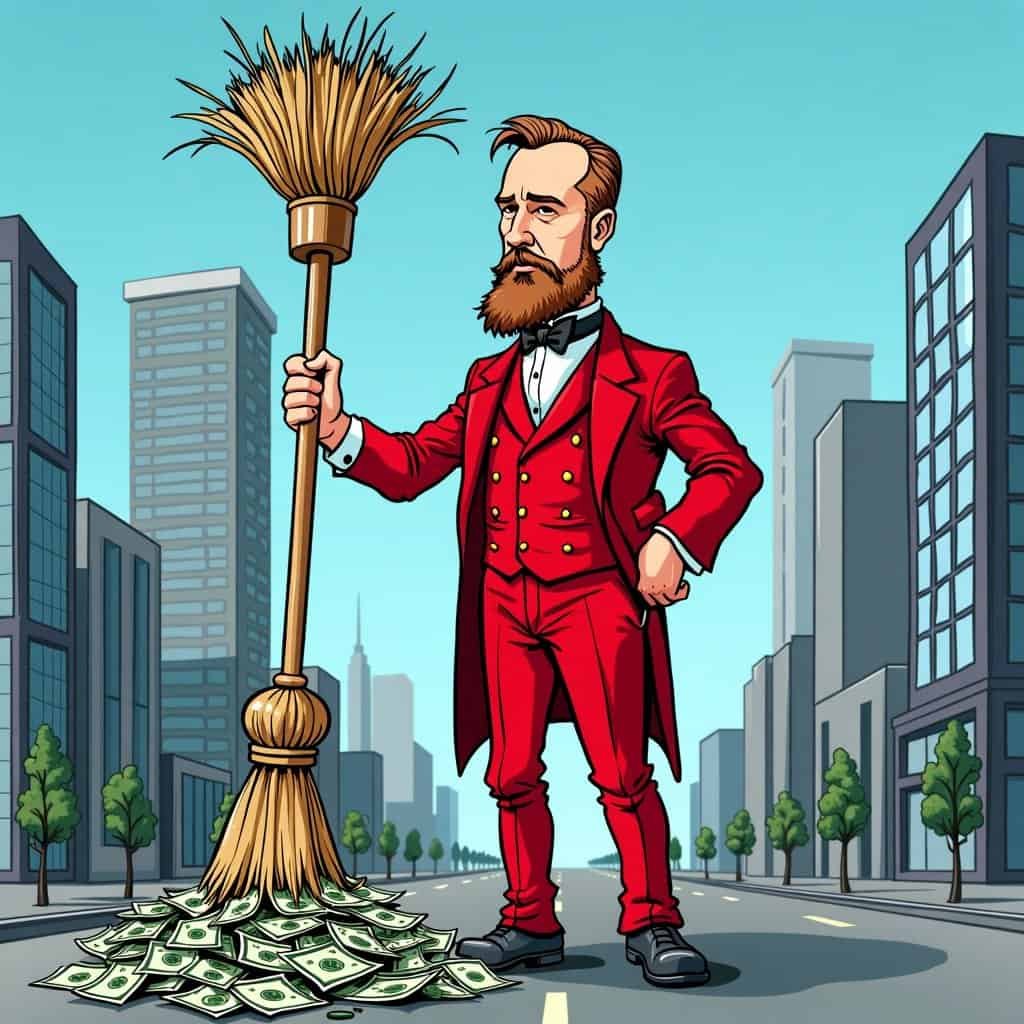Ulysses S. Grant isn’t typically associated with urban poverty discussions. When you hear his name, images of Civil War battles and victory cigars probably spring to mind. But this iconic leader, who fiercely preserved the Union, also championed ideas that align with modern conservative economic and social values. Was he all about hiking taxes to “help” the lower class into dependency? Not a chance. Let’s explore the practical principles Grant embodied and how they still ring true today.
Grant grasped a concept that still eludes progressives. Throwing money at urban issues – or “wealth redistribution” as it’s euphemistically called – breeds dependency. Productivity, on the other hand? That’s the real game-changer. Instead of centralizing government power or creating a legion of dependent citizens, Grant zeroed in on efficiency. His administration aimed to funnel funds into areas that could spark opportunity, not perpetuate endless handouts. Sound familiar? It should – it’s straight out of the Republican playbook!
Grant’s Approach to Urban Challenges
| Grant’s Principles | Modern Conservative Values |
|---|---|
| Focus on systemic efficiency | Streamlining government operations |
| Promote economic independence | Encourage self-reliance |
| Strengthen infrastructure | Invest in long-term economic growth |
| Resist governmental overreach | Limit federal intervention |
Despite whispers of corruption in his administration – no doubt fueled by political rivals looking for dirt – Grant’s principles stood firm against one major temptation: government overreach. Unlike today’s progressive push to tax innovation into oblivion, Grant aimed to bolster infrastructure and cement economic independence for the hardworking folks in America’s cities. Education and labor reforms during his era showed promise as tools to lift Americans out of poverty – and Grant wasn’t handing out participation trophies in the process.
Grant vs. Democrats: A Tale of Two Approaches
Here’s the kicker: While Democrats of his time (shocker!) were busy complicating recovery for newly freed African-Americans post-Civil War, Grant showed what real leadership looks like. Limited government, local empowerment, and creating paths for self-reliance – that’s what made America tick under his watch. He wasn’t about “equal outcomes”; he sought to offer opportunity without tying people to Uncle Sam’s apron strings.
Modern Implications of Grant’s Principles
Now, compare that with liberals preaching sky-high taxes to “fix poverty,” which basically means everyone gets the same slice of pizza, regardless of who made the dough or added the toppings. Grant’s model was more about giving people the tools to make their own pizza, not just delivering charity slices. It’s hard work, determination, and opportunity – not suffocating regulations – that pave the way out of poverty. As conservatives, we can look back to his legacy as proof that policies favoring personal responsibility and individual potential deliver results.
Final Thoughts: Grant’s Legacy in Modern America
One last thought: The current progressive playbook loves to point fingers at infrastructure, capitalism, or historical wrongs whenever urban poverty comes up. But if Grant were to stroll back into town, with his unwavering focus on strengthening rather than constraining the citizenry, he’d remind America we thrive when we focus not on bailing out but building up. A hand up empowers; a handout keeps you grounded. Oh, Ulysses, what a visionary!
So, next time Grant’s name pops up, don’t just think of battlefields and history books. Think of a conservative icon who championed empowerment over inequality and growth over dependence. If he could take on Robert E. Lee, he surely would have seen through today’s endless excuses for economic stagnation. Hats off to you, General!
Table of Contents
- Grant’s Approach to Urban Challenges
- Grant vs. Democrats: A Tale of Two Approaches
- Modern Implications of Grant’s Principles
- Final Thoughts: Grant’s Legacy in Modern America






